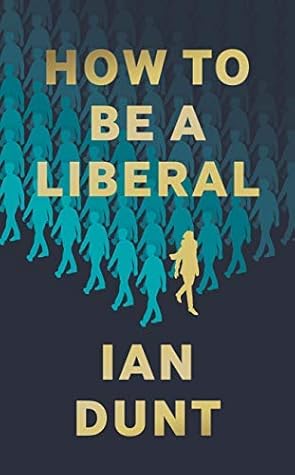More on this book
Community
Kindle Notes & Highlights
by
Ian Dunt
Read between
September 29 - October 15, 2021
If nationalists can lie without consequence, the concepts of truth and falsity fall into irrelevance. And then there will be no checks on their power whatsoever.
Cogito, ergo sum. I think, therefore I am. It is arguably the most famous sentence in all of western philosophy. And it is also – without hyperbole – the single most beautiful thought in the history of humankind. It is the only thought you can have which is certainly true without any hint of doubt. There is simply no other thought like it. It proves itself, in a circular motion, by virtue of what it contains. It is a closed system of perfect confidence.
The secret police, the busybody preacher and the nosey neighbour were all manifestations of the same problem.
Mankind, in whatever time and in whatever society, was powerfully susceptible to convention. Any idea that challenged the assumptions of that period was liable to be deemed offensive. To silence offence was to end progress.
The Great Depression was finally brought to an end when governments needed to spend huge amounts of money to pay for the war effort. But if countries were able to stimulate demand to pay for war, why could they not do it in times of peace? ‘Hitherto war has been the only object of governmental loan-expenditure on a large scale which governments have considered respectable,’ Keynes said. ‘In all the issues of peace they are timid, over-cautious, half-hearted, without perseverance or determination.’
Nationalism was the dark side of patriotism. It was what happened when you allowed those without a love of the individual to establish a monopoly on the love of country.
As soon as this group identity took hold, people’s capacity to form independent thoughts started to disintegrate. Eventually, the objective world of evidence and universal moral standards simply disappeared. A British Tory would defend self-determination in Europe but oppose it in India. Outrages like hostage-taking or forced labour would be treated as either acceptable or unacceptable depending on who did them.
Philosophers kept insisting that there was a mythical authentic self that lay separate to the way people truly behaved. This was what Rousseau and Marx had done. They had imagined a collective higher self – either in the general will or class consciousness – which was disconnected from how people acted in real life. And then their disciples, in the years after their death, had tried to bludgeon humans into the desired shape, at terrible cost.
If cultural relativism was true, even the most despicable acts could be justified on the basis that they were culturally appropriate. The conclusions it came to, much to the horror of its left-wing defenders, were invariably very right wing.
But the problem had been mislocated. In those instances, the issue was the racism, not the sharing. ‘The problem is that if The Beatles tell me that they learned everything they know from Blind Willie Johnson,’ the poet Amiri Baraka said, ‘I want to know why Blind Willie is still running an elevator in Jackson, Mississippi. It’s that kind of inequality that is abusive, not the actual appropriation of culture because that’s normal.’


